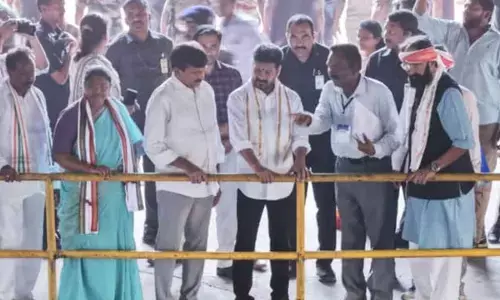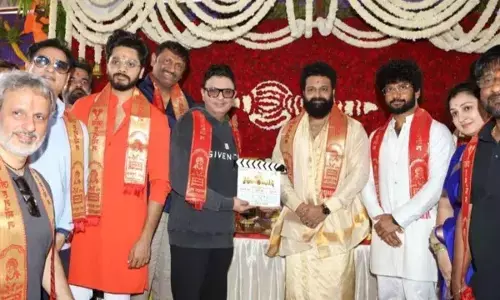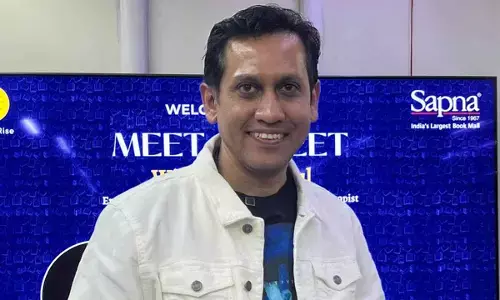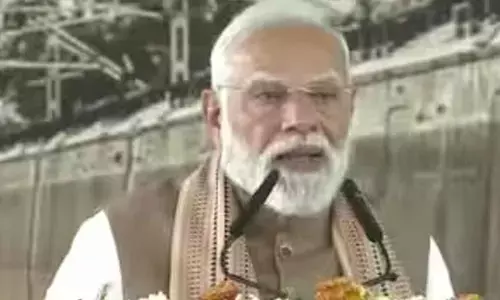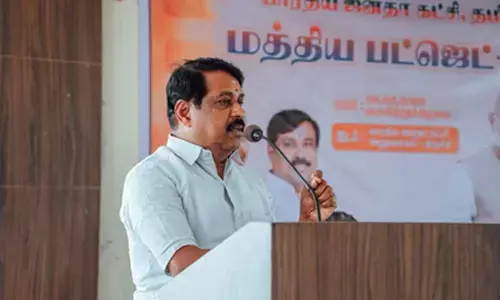US-India deal alarms China
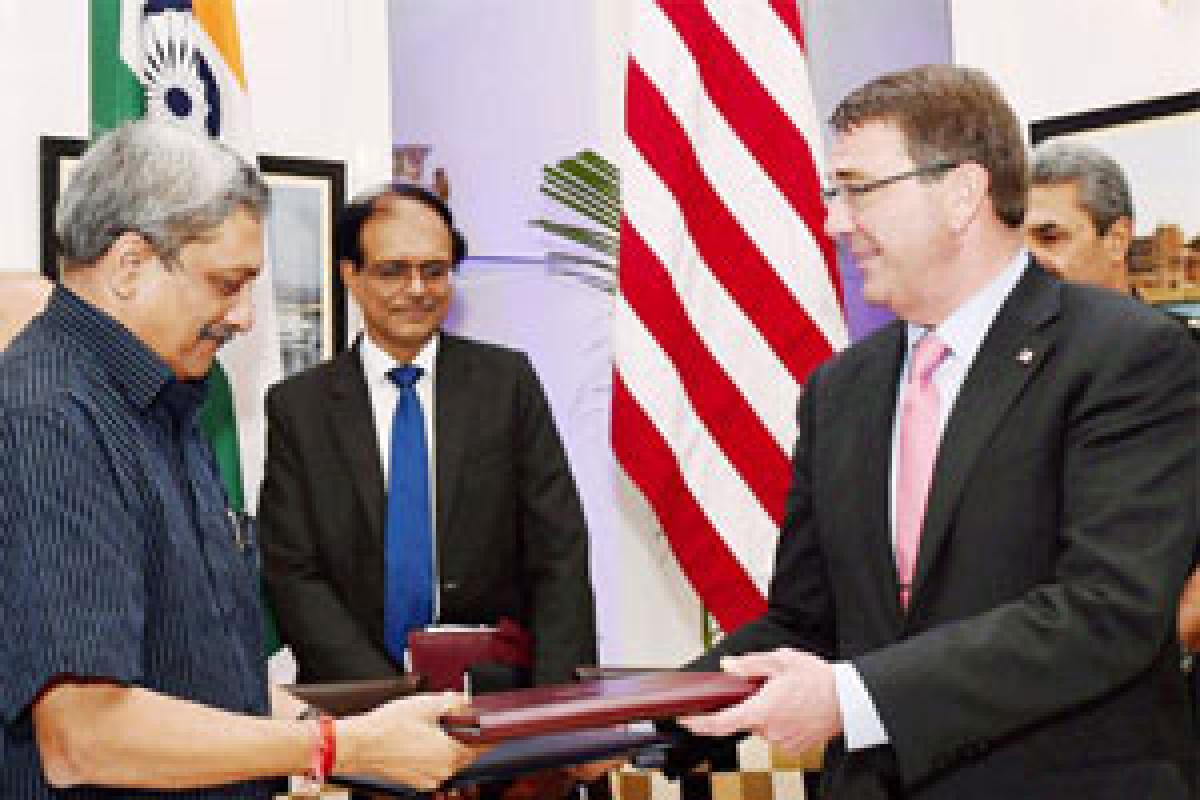
Clarity on Obama’s ‘Rebalancing Strategy’ is also the need of the hour because this policy concerns the continent of Asia, where Indian interests are based. New Delhi must ensure that it is not used as a pawn and a counterweight to China. More than China, care must be taken not to antagonise Russia, which has been India’s indispensable partner
Definitive changes in policy don’t happen suddenly one day; often these take over weeks and months, and sometimes years. India and the US joint defence collaboration, under the Defence Technology and Trade Initiative (DTTI), has resulted in a new security paradigm that found greater visibility by the recently-concluded visit of US Defence Secretary Ashton Carter to India.
The increased defence cooperation was manifest in New Delhi’s readiness to agree ‘in principle’ to sign the Logistics Exchange Memorandum of Agreement (LEMOA) or traditionally called the Logistic Support Agreement (LSA) in the coming months by means of which the American aircraft and warships would be able to access Indian military bases for logistical purposes, including refueling, replenishment and repair. In turn, India’s military will enjoy similar access to US bases. The conclusion of this pact is slated to qualitatively transform New Delhi’s relations with Washington DC.
As is always the case in this realpolitik world, defence agreements between two countries often result in a ’security dilemma.’ This is exactly what has happened to Beijing, which has responded cautiously to the Indo-US logistics pact. Even though Beijing has acknowledged that New Delhi is free “to make up its diplomatic policies based on its own interests,” it criticised Carter’s decision to drop Beijing from the itinerary of his Asia visit, which took him to India and the Philippines.
The new agreement between India and the US is imperative and strategic for both countries but the larger question is whether closeness to the US is advisable at the cost of China? History shows us that neither China (with which India has a war story) nor the US (which was a cold war ally of Pakistan) has been New Delhi’s true friends. Even today their closeness with India is based on their own strategic calculations.
China continues making ports around India, is carrying on with the China Economic Corridor (CPEC), is making dams on River Brahmaputra much to the annoyance of India and of late has even moved to block India’s bid to designate JeM chief Masood Azhar as terrorist by the UN, following the terror attack on Pathankot airbase in January.
Similarly, the US in spite of India’s repeated concerns continues to sell F-16 aircrafts and military helicopters to Pakistan, besides giving it aid increasingly in the name of tackling terror. The US has also been willing to placate Pakistan on the nuclear issue, even implying that Pakistan’s tactical nuclear weapons programme was possibly a response to India’s Cold Start doctrine.
New Delhi must take care not to conduct its foreign policy through the American prism. More than China, care must be taken not to antagonise Russia, which has been India’s indispensable partner. Forsaking old friends, who have bailed out India in times of need, is not advisable and Moscow is definitely one such friend whose military prowess was exhibited in its actions in Ukraine, Crimea and Syria.
Efforts to deepen defence cooperation in areas where India needs American technology and help must be considered and encouraged. The geopolitics and not so friendly neighbourhood of India propels the need to have a strong defence mechanism in place, be it in the form of investments in maritime sector or building a futuristic infantry and this is where the DTTI with the US can come handy.
Also its high time Indians should be united so far as national security interests are concerned and should speak in one voice. Any projection of a defence deal (that can possibly serve India’s interests) as a ‘sovereignty issue’ for political reasons would be a misrepresentation because any deal made should be viewed holistically and not one-sidedly. For instance, signing the LSA doesn’t just mean joining a military alliance with another country but it can serve useful purposes as well especially at the time of humanitarian rescue efforts such as Operation Raahat that evacuated Indian citizens from Yemen last year.
The only thing to be remembered here is the fact that in international politics, there are no permanent friends or foes; there are just permanent national interests.


